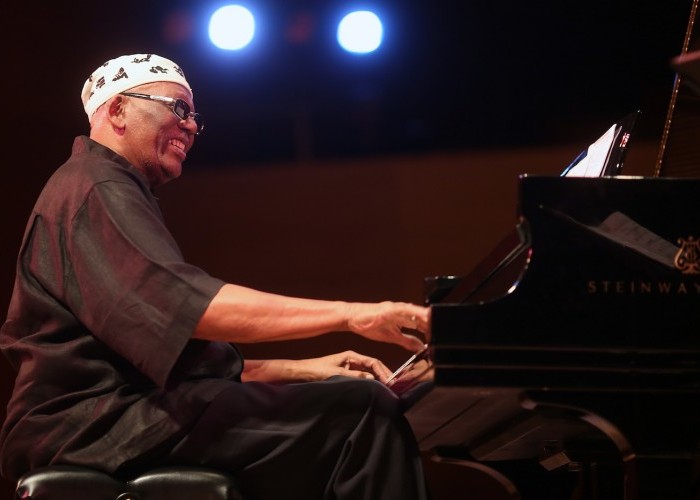
As a child, Mr. Weston took classical piano lessons, but did not fall in love with the instrument until he started studying with a teacher who encouraged his love for the jazz protagonists of the day, particularly Ellington, Count Basie and Coleman Hawkins.
Mr. Weston was drafted into the Army in 1944, serving three years and rising to the rank of staff sergeant. While stationed in Okinawa, Japan, he was in charge of managing supplies, and frequently tried to share leftover materials and food with local residents, many of whom had lost their homes in World War II.
Upon returning to Brooklyn, he took over managing his father’s restaurant, Trios, which became a hub of intellectuals and artists. Mr. Weston began playing jazz and R&B gigs in the borough, seeking wisdom from older musicians. He became particularly close to Monk.
“When I heard Monk play, his sound, his direction, I just fell in love with it,” Mr. Weston told All About Jazz in 2003. “I would pick him up in the car and bring him to Brooklyn and he was a great master because, for me, he put the magic back into the music.”
Heroin use was rampant on the jazz scene then, and Mr. Weston developed a habit. In 1951 he left New York to get clean, moving to Lenox, Mass. He made frequent trips to the Music Inn, a venue in nearby Stockbridge, and while working there met Marshall Stearns, a leading jazz scholar with strong beliefs about jazz’s West African roots, who was giving lectures and leading workshops at the venue.
Mr. Weston started to perform regularly, and he and Mr. Stearns collaborated on a series of round tables about the history of jazz. Mr. Weston met a range of musicians from across the African diaspora, including the Nigerian drummer Babatunde Olatunji, the Cuban percussionist Cándido Camero, and the Sierra Leonean drummer Asadata Dafora.
When he retur
